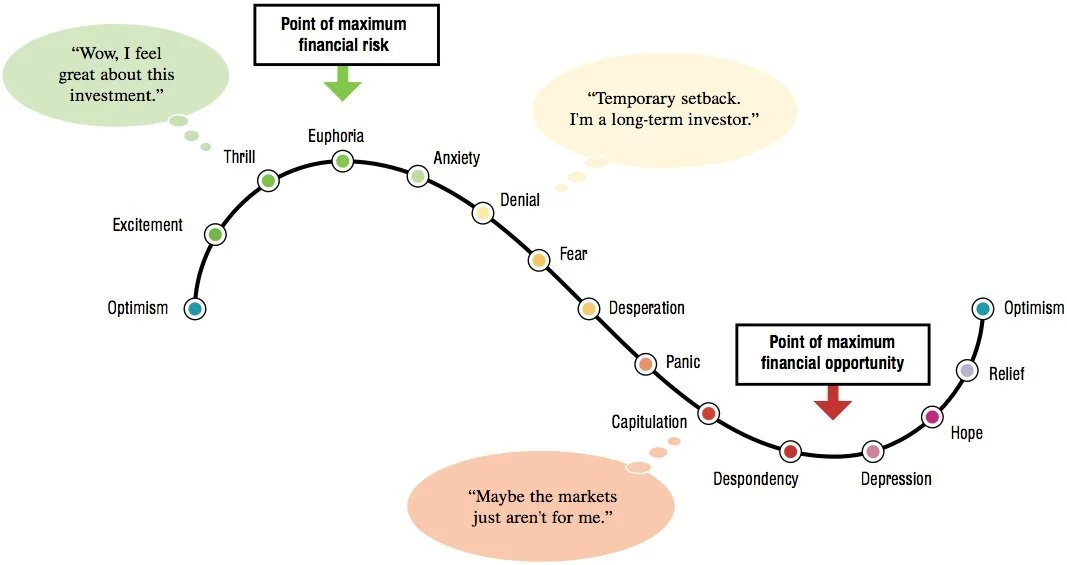How to Invest in Uncertain Times
The financial markets are in the middle of a storm unlike anything we’ve seen in recent history. Geopolitical chaos is rampant—trade wars, strained alliances, and the U.S. shifting towards isolationism are causing money (and investors) to flee U.S. stocks in favor of international markets. Add in a red-hot stock market, growing consumer credit debt, and economic uncertainty, and we’re looking at the perfect financial storm with no clear path to safety.
If you’re an investor right now, it’s natural to be worried. And frankly, you should be. The market is likely to drop further before it recovers. But before you panic, take a deep breath. This is not the time for a knee-jerk reaction or an impulsive overhaul of your portfolio. Instead, it’s time for strategic moves and level-headed investing.
Stay the Course: Why Rebalancing Now May Not Be Advisable
One of the worst things you can do in a volatile market is make rash decisions. Many investors are tempted to completely rebalance their portfolios when the market takes a hit, but that often leads to locking in losses and missing out on the eventual recovery. Instead of making dramatic shifts, consider these strategies:
Keep Dollar-Cost Averaging (DCA)
Dollar-cost averaging (DCA) is your best friend right now. This strategy involves consistently investing a fixed amount of money at regular intervals, regardless of market conditions. The benefit? You buy more shares when prices are low and fewer when prices are high, which lowers your average cost per share over time.
The stock market is unpredictable in the short term, but history has shown one undeniable truth: it always goes up in the long run. The key is to stay invested and keep adding to your positions while prices are lower.
Lower Your Cost Basis
If you’ve already been investing regularly, now is the time to consider putting more into your current allocations. By buying at a discount, you can lower your overall cost basis, which sets you up for bigger gains when the market recovers. Think of it like getting your favorite stocks on sale.
If You're Near Retirement, Protect Yourself
If you’re within a few years of retirement, this downturn can feel particularly stressful. Ideally, your portfolio should have already been adjusted to account for market risk, but if you haven’t made those moves yet, now is the time to be cautious.
You may need to delay retirement or adjust your spending expectations if your portfolio takes a significant hit. Work with a financial advisor to create a plan that prioritizes capital preservation while still allowing for long-term growth.
Is This a Buying Opportunity? Hell Yes—But Be Smart About It
The market is down, and for long-term investors, that means one thing: buying opportunity. But don’t go all-in at once—timing the absolute bottom is nearly impossible. Instead, follow a three-stage buying approach:
Buy Now: Take advantage of the current dip and start buying shares at a discount.
Buy Again When You Think It's the Bottom: Nobody can predict the exact bottom, but if prices drop further, consider making another purchase.
Buy on the Way Back Up: When the market begins to recover and a new bull market forms, keep adding to your positions.
This staggered approach helps mitigate risk while allowing you to capitalize on lower prices.
The One Thing You Must Remember: No One Knows What Will Happen
Here’s the hard truth: no one—not Wall Street analysts, not economists, not even the most experienced investors—knows exactly what’s going to happen or when the market will recover. The best thing you can do is create a plan and stick to it.
Trying to time the market is a fool’s game. Instead, focus on what you can control:
Your investment strategy (DCA, cost basis reduction, strategic buying)
Your risk tolerance and asset allocation
Your long-term financial goals
Final Thoughts: Keep Your Head in the Game
Market downturns are scary, but they’re also a normal part of the investing cycle. If you stay disciplined, keep investing strategically, and resist the urge to make emotional decisions, you’ll come out ahead in the long run.
Stay patient. Stay invested. And remember—opportunity often hides in the chaos.
Got questions about how to navigate this market chaos? Black Mammoth is here to help. Let’s build your strategy together—because your financial future is too important to leave to chance.


